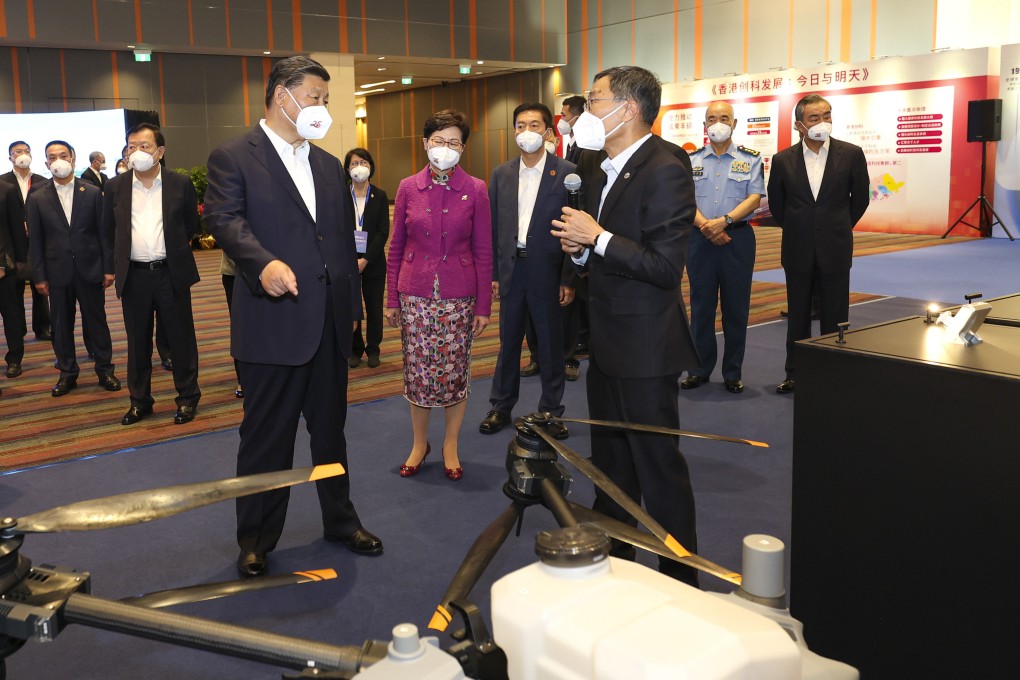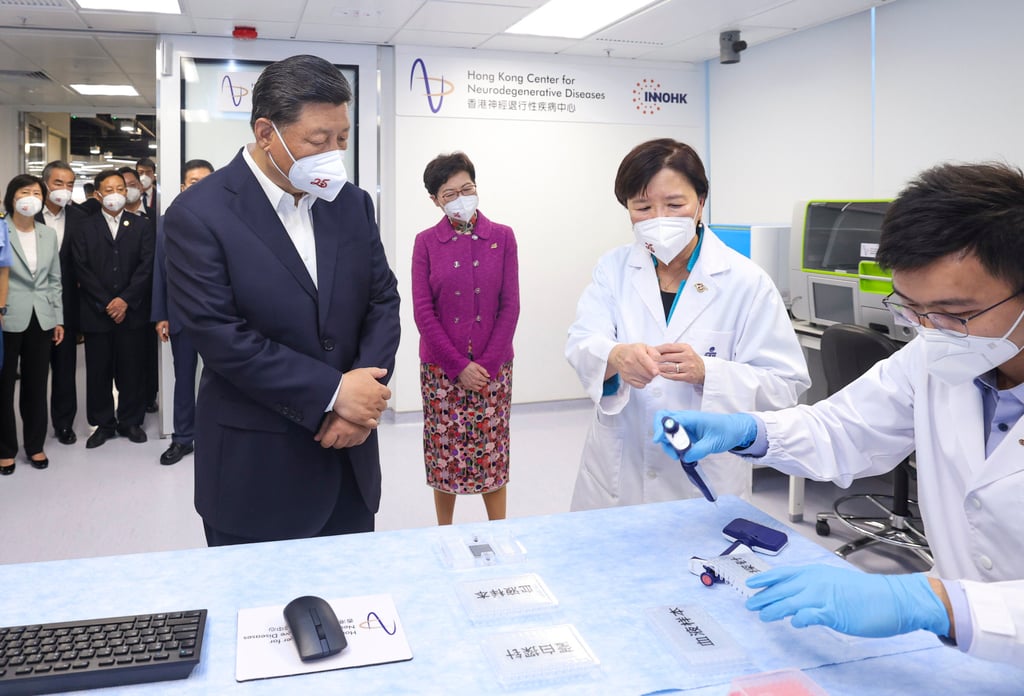Hong Kong should fill tech void in China, push for removal of curbs on start-ups in bid to become country’s international I&T hub, industry players urge
- Hong Kong can focus on high value-added technologies, attract talent to city and fill chip-making void on the mainland, says one industry expert
- Professor Dennis Lo of Chinese University says hurdles such as data access and extending validity of Hong Kong’s patents to mainland need to be resolved

Hong Kong should fill the technological void in China caused by United States sanctions and push for restrictions on the city’s start-ups on the mainland to be removed if it wants to become the country’s global innovation and technology (I&T) hub, industry experts have urged.
Hopes for the city’s I&T future were raised after Chinese President Xi Jinping told scientists and researchers on Thursday that he envisaged Hong Kong as the country’s international I&T hub while visiting the Science Park, a call described by its head as “monumental”.
A source said Xi made it “clear that Hong Kong will be the international I&T hub of China” while addressing a group of scientists, innovators and young entrepreneurs during the visit, accompanied by Carrie Lam Cheng Yuet-ngor on the final day of her five-year term as the city’s chief executive.

In a video released by the government, Lam also urged the president to offer more innovation projects for Hong Kong to take over.
“Don’t just give them all to Shenzhen. We’ll also undertake these projects,” she said.
Shenzhen overtook Hong Kong in terms of gross domestic product in 2018 due to its advancement on IT development.
John Lee Ka-chiu, who was sworn in as the city’s new chief executive by Xi on Friday, vowed to place more emphasis on the “development of Hong Kong into an international I&T hub”, saying the government would strive to fully develop a range of emerging industries under the national 14th five-year plan.